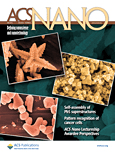
ACS Nano
Scope & Guideline
Elevating Engineering through Nanoscience Excellence
Introduction
Aims and Scopes
- Nanomaterials and Nanostructures:
The journal covers a broad range of nanomaterials, including metals, semiconductors, and polymers, focusing on their unique properties and potential applications in various fields. - Nanomedicine:
Research related to the use of nanomaterials for medical applications, including drug delivery systems, imaging, and therapeutic agents, is a significant area of focus. - Energy Storage and Conversion:
The journal publishes studies on nanostructured materials for energy applications, such as batteries, supercapacitors, and fuel cells, highlighting advancements in performance and efficiency. - Environmental Nanotechnology:
Research addressing the environmental implications of nanomaterials, including their role in pollution remediation and sustainable practices, is also prominently featured. - Characterization Techniques:
Innovative methodologies for the characterization of nanomaterials at the atomic and molecular levels, including advanced microscopy and spectroscopy techniques, are a key aspect of the journal.
Trending and Emerging
- Smart Nanomaterials:
Research on smart and responsive nanomaterials, which can change their properties in response to environmental stimuli, is gaining prominence, highlighting their potential in various applications. - Biomimetic Approaches:
Studies integrating biomimetic designs and materials are trending, focusing on replicating natural systems for enhanced functionality in fields like drug delivery and tissue engineering. - Sustainable Nanotechnology:
There is an increasing emphasis on sustainable practices in nanotechnology, including the development of biodegradable nanomaterials and environmentally friendly synthesis methods. - Nanoplatforms for Immunotherapy:
The application of nanomaterials in cancer immunotherapy is rapidly expanding, with innovative designs aimed at enhancing immune responses and targeting tumor cells more effectively. - Machine Learning and AI Applications:
The incorporation of machine learning and artificial intelligence in the design and analysis of nanomaterials is emerging as a powerful trend, facilitating rapid advancements in material discovery and optimization.
Declining or Waning
- Traditional Materials Science:
Research centered on bulk material properties and applications has decreased in prominence as interest shifts towards more advanced nanomaterial applications. - Nanoelectronics:
Although still relevant, the volume of publications specifically focused on nanoelectronic devices has waned, possibly due to the saturation of certain topics and the emergence of new fields. - Nanotoxicology:
Investigations into the toxicological effects of nanomaterials have seen a reduction in focus, potentially due to a growing consensus on safety and regulatory frameworks. - Static Applications:
Research on static or non-responsive nanomaterials is declining as the field increasingly emphasizes dynamic and responsive systems that can adapt to environmental changes.
Similar Journals
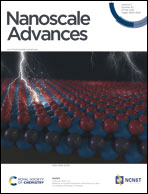
Nanoscale Advances
Innovating at the Nanoscale for Tomorrow's Solutions.Nanoscale Advances, published by the Royal Society of Chemistry, stands out as a leading open-access journal dedicated to advancing the field of nanoscience and nanotechnology since its inception in 2018. With a specialized focus on areas such as atomic and molecular physics, bioengineering, chemistry, and materials science, this journal has consistently achieved top-tier rankings across several categories, reflecting its high-impact contribution to research and innovation. Currently classified in the Q1 quartile for both Atomic and Molecular Physics and Chemistry (Miscellaneous), and Q2 for Bioengineering, its prestige is underscored by impressive Scopus rankings, including a notable 34th position in General Engineering. With its commitment to disseminating high-quality research, Nanoscale Advances serves as an invaluable resource for researchers, professionals, and students alike, fostering collaboration and scholarly exchange in the rapidly evolving landscape of nanotechnology.
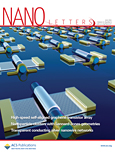
NANO LETTERS
Exploring the future of materials at the nanoscale.NANO LETTERS is a leading journal, published by the American Chemical Society, that focuses on the rapidly evolving field of nanoscience and nanotechnology. With an impressive impact factor and consistently ranked in the Q1 category across multiple disciplines including Bioengineering, Materials Science, and Condensed Matter Physics, it serves as an essential resource for researchers and professionals aiming to stay at the forefront of nano-related advancements. This journal, available in print and online (ISSN: 1530-6984, E-ISSN: 1530-6992), features cutting-edge research articles that explore the intricate interplay between nanoscale materials and emerging technologies, driving innovation across various sectors. As of 2023, NANO LETTERS holds prestigious rankings, including a top position in several Scopus categories, underscoring its impact within the scientific community. Published continuously since 2001, NANO LETTERS is dedicated to disseminating high-quality research papers that inspire and inform the next generation of scientists and engineers.

Advanced Science, published by Wiley, stands as a premier open-access journal since 2014, dedicated to fostering innovative research and insights across multiple disciplines including Biochemistry, Genetics and Molecular Biology, Chemical Engineering, Engineering, Materials Science, Medicine, and Physics and Astronomy. Based in Germany, this journal has quickly established itself in the academic community, receiving high recognition with a Q1 ranking in its respective categories as of 2023. With its impressive Scopus rankings, including #1 in Biochemistry, Genetics and Molecular Biology and #3 in General Engineering, Advanced Science plays a pivotal role in disseminating groundbreaking scientific knowledge to researchers, professionals, and students alike. By embracing an open access model, it ensures that high-quality research is readily available to a global audience, thus facilitating advancements in science and engineering fields.

Energy & Environmental Materials
Bridging Science and SustainabilityEnergy & Environmental Materials, published by WILEY, is an esteemed academic journal dedicated to pioneering research in the multifaceted domains of energy, environmental science, and materials science. Since its inception in 2018, this journal has rapidly established itself as a leading platform, holding a prestigious Q1 ranking across multiple categories including Renewable Energy, Sustainability, and Waste Management, reflecting its significant contributions to advancing knowledge in these critical areas. With a robust Scopus ranking that positions it in the top percentile for Environmental Science and Materials Science, it caters to a diverse audience of researchers, professionals, and students seeking cutting-edge findings and practical applications in energy efficiency and sustainable materials. This open-access journal facilitates the dissemination of innovative research and aims to bridge the gap between scientific exploration and real-world solutions for a sustainable future. The editorial team encourages submissions that explore both theoretical and practical aspects, ensuring that every publication not only contributes to the academic landscape but also drives impactful change in energy and environmental practices.
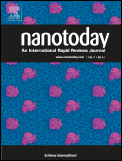
Nano Today
Unveiling the future of science at the nanoscale.Nano Today is a prestigious journal published by ELSEVIER SCI LTD that stands at the forefront of nanoscience and nanotechnology research. With an impact factor that underscores its significance, this journal has achieved remarkable rankings in several key categories as of 2023, including Q1 positions in Bioengineering, Biomedical Engineering, Biotechnology, Materials Science, and Pharmaceutical Science, making it an essential resource for scholars and professionals alike. ISSN 1748-0132 and E-ISSN 1878-044X, the journal serves as a vital platform for disseminating cutting-edge research findings and innovative applications in the field. Although open access options are not available, the journal's rich repository of peer-reviewed articles provides invaluable insights into the latest advancements in nanotechnologies. Based in the Netherlands, Nano Today not only connects a global network of researchers but also propels forward the conversation on the transformative potential of nanomaterials across multiple disciplines. With a commitment to advancing knowledge and fostering innovation, Nano Today is an indispensable tool for academics and practitioners dedicated to pushing the boundaries of scientific exploration.

Nanoscale Research Letters
Bridging science and application at the nanoscale.Nanoscale Research Letters, published by SPRINGER, is a leading open-access journal dedicated to the rapid dissemination of innovative research in the field of nanoscience and nanotechnology. Established in 2006, this journal provides researchers and professionals with a platform to share their groundbreaking findings across a broad spectrum of applications, including condensed matter physics and materials science. With an impressive Q1 ranking in both Condensed Matter Physics and Materials Science categories as of 2023, it asserts its position as a top-tier publication within the scientific community, bolstered by a 96th percentile rank in the Scopus database. Nanoscale Research Letters not only emphasizes the importance of nanotechnology research but also ensures that its findings are widely accessible, adhering to its open-access mandate. Scholars and students alike are encouraged to contribute to and engage with this dynamic resource, fostering collaboration and innovation in the ever-evolving world of nanoscience.

JOURNAL OF CLUSTER SCIENCE
Exploring the Frontiers of Cluster ScienceJOURNAL OF CLUSTER SCIENCE, published by SPRINGER/PLENUM PUBLISHERS, is a prominent and influential journal in the fields of Biochemistry, Chemistry, Condensed Matter Physics, and Materials Science. With an ISSN of 1040-7278 and E-ISSN of 1572-8862, this journal has been contributing to scientific discourse since its inception in 1990 and continues to publish cutting-edge research through 2024. It holds a respectable position in the academic landscape with its category quartiles indicating a Q3 ranking in Biochemistry and Q2 rankings in Chemistry, Condensed Matter Physics, and Materials Science as of 2023. The journal's noteworthy Scopus rankings further underscore its relevance, particularly a rank of #82 in Condensed Matter Physics, showcasing its impact and the quality of research disseminated. Although it does not currently offer open access options, it remains a key resource for researchers, professionals, and students who are invested in understanding the complexities of cluster science and its interdisciplinary applications.

Micro & Nano Letters
Empowering breakthroughs in miniaturized science.Micro & Nano Letters is a prominent open-access journal published by WILEY, dedicated to advancing the fields of micro and nanoscale science and technology. Since its inception in 2007, the journal has been a valuable resource for researchers, professionals, and students, delivering high-quality research that supports innovation and collaboration in bioengineering, biomedical engineering, condensed matter physics, materials science, and nanoscience. With an impact factor that reflects its growing influence, Micro & Nano Letters has earned recognition in various Scopus categories, including a Q3 ranking in both Condensed Matter Physics and Materials Science as of 2023. Its commitment to open access, established in 2021, ensures that the latest developments in micro- and nanotechnologies are accessible to a global audience, fostering a multidisciplinary dialogue across academia and industry. The journal continues to play a critical role in disseminating cutting-edge research and promoting technological advancements worldwide.

Nano Hybrids and Composites
Bridging Academia and Industry in NanotechnologyNano Hybrids and Composites, an esteemed journal published by TRANS TECH PUBLICATIONS LTD, serves as a pivotal platform for the dissemination of groundbreaking research in the field of nanotechnology and materials science. With an ISSN of 2297-3370 and E-ISSN of 2297-3400, this journal aims to provide comprehensive insights into the development and application of nano-hybrid materials and composites, exploring their innovative uses across various industries. The journal is particularly distinguished for its commitment to Open Access, enabling unrestricted access to high-quality research findings that influence both academia and industry. Researchers, professionals, and students are encouraged to contribute to and engage with the vast array of topics covered, as the journal not only enhances the scientific discourse but also fosters collaboration and advancement in this rapidly evolving field.
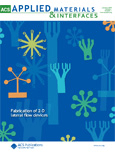
ACS Applied Materials & Interfaces
Exploring Breakthroughs in Materials Science and InterfacesACS Applied Materials & Interfaces, published by the American Chemical Society, stands as a leading journal in the field of applied materials, nanotechnology, and interdisciplinary research in medicine. With an impressive Impact Factor that places it in the Q1 category across Materials Science, Medicine, and Nanoscience and Nanotechnology, this journal consistently ranks among the top tier, evidencing its significance and influence in advancing scientific knowledge. The journal’s scopus ranking of 33 out of 463 in General Materials Science further underscores its critical role in disseminating innovative and high-quality research. Although it is not an open-access journal, a diverse range of access options is available, ensuring that vital research findings are accessible to a broad audience of researchers, professionals, and students. Targeting breakthroughs in the synthesis, characterization, and application of materials and interfaces, ACS Applied Materials & Interfaces serves as a pivotal platform for publishing cutting-edge studies essential for future technological advancements.